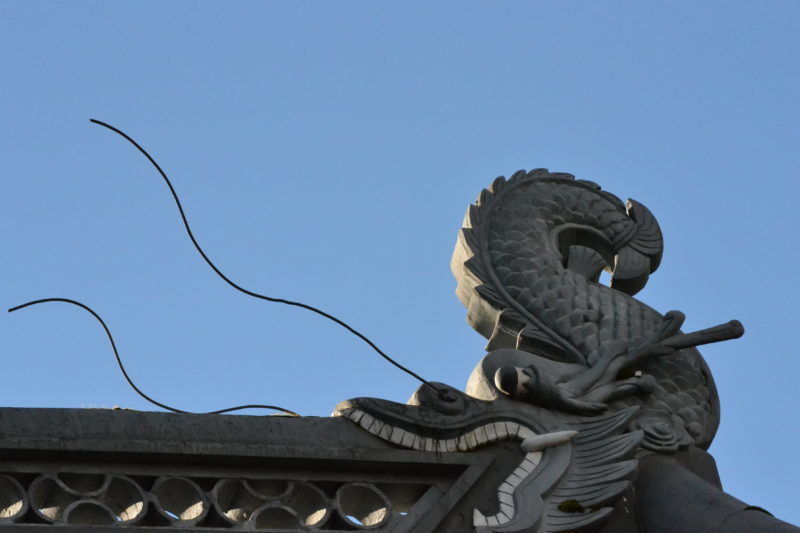Yesterday I wrote about laughter, today it shall be tears. Rest assured not mine, or at least not publicly.
I will discuss them in the context of the confession of a Netflix addict, yours truly, who has been hooked on a Chinese Soap Opera for the last several weeks. The Rise of the Phoenixes has me mesmerized and I am trying hard, and largely unsuccessfully, to figure out why exactly.
A word of warning, you don’t want to start watching this, unless you care to waste 45 minutes x 70 (no typo) episodes of your life’s time. Even I will not make it to the last episode, particularly since it doesn’t have a happy ending. (How do I know? Why, I do the same for Tv that I do for books, I always check the ending out first, and don’t even think about calling me on this, I’ve had that debate too often…)
My entire knowledge of China consist of having read Clavell’s Tai Pan and other such beach novels, and a serious perusal of The Selected Works of Mao Zedong in an equally serious book group of my first year at university, aged 17. Man, were we naive.
So why am I glued to a historical drama, whose every allusion (as critics claim) to contemporary Chinese society escapes me? The story has a few main strands. There is the old emperor who’s 10 sons fight for succession, with every court intrigue imaginable, killing each other off if need be. There is a rival empire trying to restore past glory and usurp the current realm. There is boy meets girl mixed in (in sort of a Chinese variation on taming of the shrew), with girl having to pretend to be a boy until another scheming courtier unravels the secret and has her (almost) executed.
There is no other way than to describe the visual experience as Vermeer meets Dior meets Monet meets Eisenstein. The colors and lighting are straight out of the old Dutch Masters. The costumes are exquisite, ever changing, subtly matched in color to amplify the gilded surroundings and intricate carvings of the palace interiors. The (rare) outdoor shots along willowy waterways or bridges are reminiscent of french impressionism. And the battle scenes choreography would make Sergey Eisenstein proud.
The intellectual experience, if you dare to call it that, is one of extreme gendered display: with few exceptions, all the background women are scheming, nasty, power hungry or push-overs who spend 18 years parked in cold corner of the imperial palace, waiting for a turn as concubine. They all have secrets in their past, and are meeting sordid fates, never being shown in positive relationships. Then there are the men, spread across a much larger canvas of possible qualities, and often in buddy relationships or with side kicks, blurring the lines between servant and master, teacher and friend. Our hero stands out as breathtakingly beautiful (a 42 year old actor playing a prince in his 20s and you believe it in a second) and smart and just and beloved by all, including our heroine who, alas, can’t marry him. As long as she plays a man, she also has friends and social contacts and guards that adore her (the kind that can fly through the air in true Chinese martial arts-movie fashion.) And she manages to rescue our hero multiple times, while serving as the smartest scholar in the land at the side of the emperor. Almost impressive enough to let you forget the negative portrayal of the rest of the fair sex…..
The emotional experience, then, must be what draws me in. For one, the pace is glacial, as to be expected when you fill 70 episodes, which means lingering camera shots, endless scene changes that allow you to take in the sets, instilling a sort of meditative trance while being awash in all that color, particularly if you let the Chinese rush over you and ignore the subtitles (which translate the same word in 100 different ways…) Secondly, there are the tears – I knew I was getting to them eventually. There are harsh ones, copious ones, silent ones, noisy ones, forced ones, spontaneous ones, fearful ones, enraged ones, elegant ones, swallowed ones, single drops to flowing streams, nose running and all: and they are primarily displayed by all the men! I have never seen so many men crying with abandon around every corner! Yes, the women cry as well, but the real focus is on all those machos, dissolving. Throws out of the window everything I ever learned about emotional display rules in collectivist cultures.
And now I better get back to episode 21 to see who rescues whom from the next looming palace intrigue, leaving someone in tears before being thrown into the dungeons.
Photographs are from the PDX Chinese Garden.

















Mike
Hi, Friderike— Sounds fascinating! Like you, I only know a little of China’s history, but by far my favorite source has been Joseph Needham’s Science and Civilization in China. The full set is 22 volumes, with sections on individual sciences and technologies, like bronze casting, but there is also a two-volume short version. He details the intelligence and creativity of China, going back thousands of years. These books provided a foundation from which to view today’s culture. You might like, but I realize your book pile grows ever higher!
Gloria
Fascinating post and beautiful, really beautiful photos and reason 101 why we are friends: I too read book endings early on (haven’t gotten to videos!). Ah, transgression…
Sara Lee
Have put “The Rise…” on my list. Right now I’m knee deep in “Madame Secretary!” That looks as if it goes on forever, too!